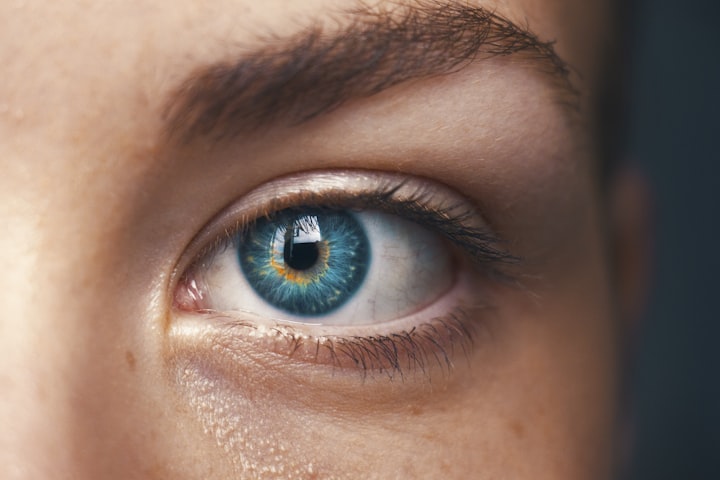Dispelling Caffeine Myths
Separating Fact from Fiction

As a writer who delves deep into topics to uncover truths, I recently immersed myself in a fascinating video discussion featuring two esteemed gastroenterologists, Dr. Sophie Balzoura from NYU Grossman School of Medicine and Dr. Ugor Roku from Mount Sinai Hospital. Together, they debunked common myths surrounding caffeine, shedding light on misconceptions that many of us have held for far too long.
Myth: Caffeine Is Bad for You
One of the most pervasive myths about caffeine is that it's inherently harmful. However, upon conducting extensive research, I discovered that this notion doesn't quite hold up. While concerns have been raised about caffeine's potential link to osteoporosis, the reality is that such risks only come into play with excessive consumption, upwards of 700 milligrams per day. For most people, the daily intake hovers around 300 milligrams, well below the threshold for any significant adverse effects.
In fact, numerous studies have highlighted the potential health benefits of caffeine, particularly when derived from sources like coffee. From reducing the risk of certain cancers to combating chronic liver disease, caffeine exhibits anti-inflammatory properties that can positively impact our health. For instance, consuming three cups of coffee daily has been associated with a decreased risk of stroke. Thus, the notion that caffeine is universally detrimental is nothing more than a myth.
Myth: Caffeine Will Make Up for Lost Sleep
Many of us have turned to caffeine in hopes of offsetting the effects of sleep deprivation. However, this belief rests on shaky ground. While caffeine can indeed enhance alertness and temporarily mask fatigue, it doesn't address the underlying issue of sleep deficiency. The reality is that nothing can truly replace the rejuvenating effects of restful sleep. Despite caffeine's ability to stave off drowsiness, it cannot fully compensate for the restorative benefits that come from adequate sleep.
Our bodies rely on a natural sleep-wake cycle regulated by the molecule adenosine. Caffeine works by blocking adenosine receptors, temporarily tricking the brain into feeling awake. Yet, once the caffeine wears off, adenosine continues to accumulate, eventually prompting the body to succumb to sleep. Thus, relying on caffeine as a substitute for sleep is akin to placing a bandage over a wound—it may offer temporary relief, but it fails to address the underlying issue.
Myth: Decaf Coffee Doesn't Have Caffeine
For many, the term "decaf" suggests a complete absence of caffeine. However, the reality is that decaffeinated coffee still contains trace amounts of this stimulant. While FDA regulations stipulate that decaf coffee must undergo a process to remove at least 95% of its caffeine content, variations in caffeine levels can occur from cup to cup.
In clinical practice, individuals with conditions like acid reflux may be advised to limit their caffeine intake, albeit not to zero. While decaf coffee offers a reduced caffeine alternative, it's essential to recognize that it's not entirely caffeine-free. Therefore, the notion that decaf coffee is completely devoid of caffeine is indeed a myth.
Myth: Caffeine Detoxes Your Body
The concept of "detoxing" has gained widespread popularity in recent years, with many touting various methods to rid the body of toxins. Among these purported detoxifiers is caffeine, which some believe can cleanse the body of impurities. However, this notion is unfounded and potentially harmful.
Attempting to detoxify the body with caffeine, whether through consumption or enemas, can lead to adverse effects, including colon injury and perforation. In reality, the body possesses its own natural detoxification mechanisms, primarily driven by organs like the kidneys and liver. Rather than relying on caffeine as a detox agent, prioritizing hydration and consuming a balanced diet rich in nutrients is a far more effective approach to supporting the body's detoxification processes.
Myth: Caffeine Dehydrates You
Another common misconception surrounding caffeine is its purported dehydrating effects. While caffeine does possess mild diuretic properties, the extent of its dehydrating effects is often overstated. Research indicates that consuming moderate amounts of caffeine, typically up to 300 milligrams per day, does not significantly impact overall hydration status.
Moreover, the notion that beverages containing caffeine, such as coffee or tea, inherently lead to dehydration fails to account for the fluid content of these beverages. In reality, the hydrating properties of caffeinated beverages can offset any mild diuretic effects, making the notion of caffeine-induced dehydration largely exaggerated.
Myth: Caffeine Is Addictive
One of the most pervasive myths surrounding caffeine is its classification as an addictive substance. While caffeine dependence is indeed a real phenomenon, it falls short of meeting the criteria for addiction. Unlike substances like opioids or nicotine, caffeine does not produce severe withdrawal symptoms or compulsive drug-seeking behavior.
Individuals who consume caffeine regularly may experience mild withdrawal symptoms, such as headaches or fatigue, upon cessation of intake. However, these symptoms are typically short-lived and do not escalate to the level of addiction seen with other substances. Ultimately, caffeine dependence is characterized by a reliance on the substance to maintain alertness, rather than the compulsive and destructive behaviors associated with addiction.
Myth: Drinking Coffee Will Stunt Your Growth
A long-standing belief perpetuated by parents warning their children against excessive coffee consumption is the notion that caffeine will stunt growth. However, scientific evidence refutes this claim, demonstrating that caffeine intake does not hinder growth or development in adolescents.
Contrary to popular belief, the moderate caffeine consumption typically observed in teenagers poses no significant risk to bone health or overall growth. Rather than caffeine, factors such as genetics and nutritional status exert far greater influence on an individual's growth trajectory. Thus, the idea that coffee consumption negatively impacts growth is nothing more than a myth perpetuated by generations past.
Myth: Tea Is Healthier Than Coffee
Tea enthusiasts often extol the virtues of their beloved beverage, claiming it to be inherently healthier than coffee. However, such assertions oversimplify the complex interplay between various types of tea and coffee and their respective health benefits.
While certain types of tea may offer unique health-promoting compounds, the same can be said for coffee. Both beverages contain antioxidants and other bioactive compounds linked to various health benefits.
About the Creator
Gregory Nelson Mensah
Step into realms where imagination reigns supreme. I weave tales that transport you to distant lands, evoke emotions, and ignite your curiosity. Explore my worlds; embark on adventures beyond your wildest dreams.






Comments
There are no comments for this story
Be the first to respond and start the conversation.